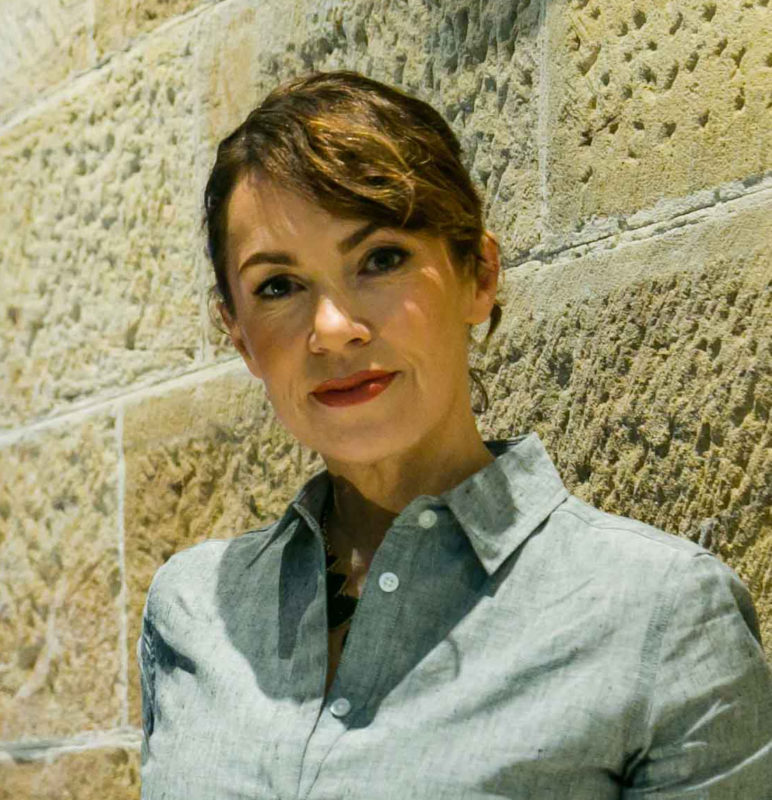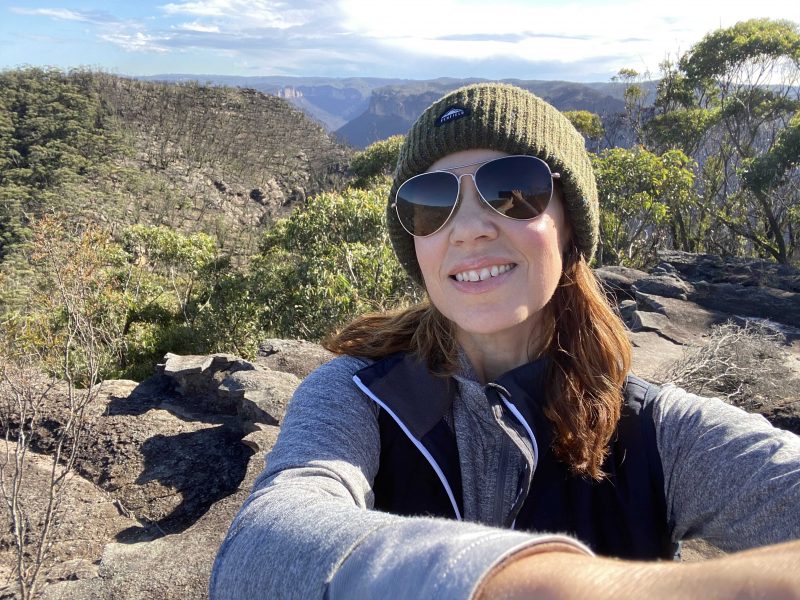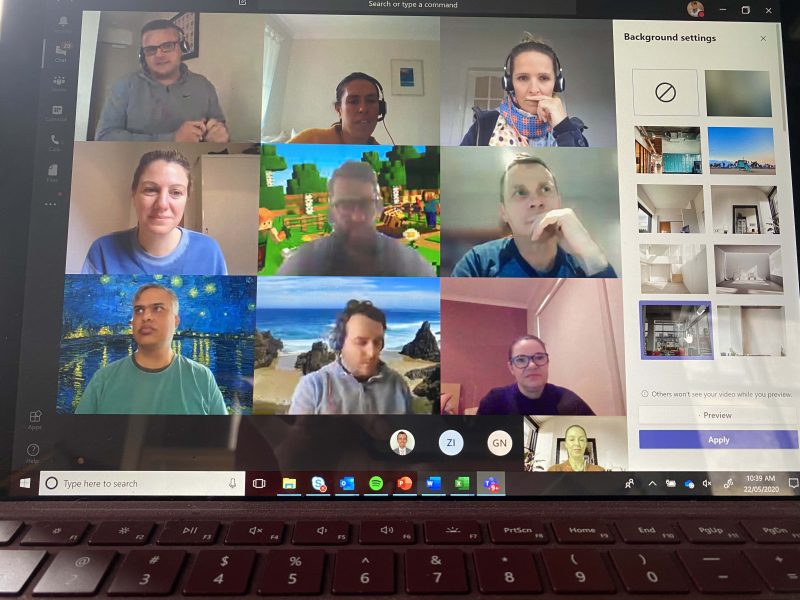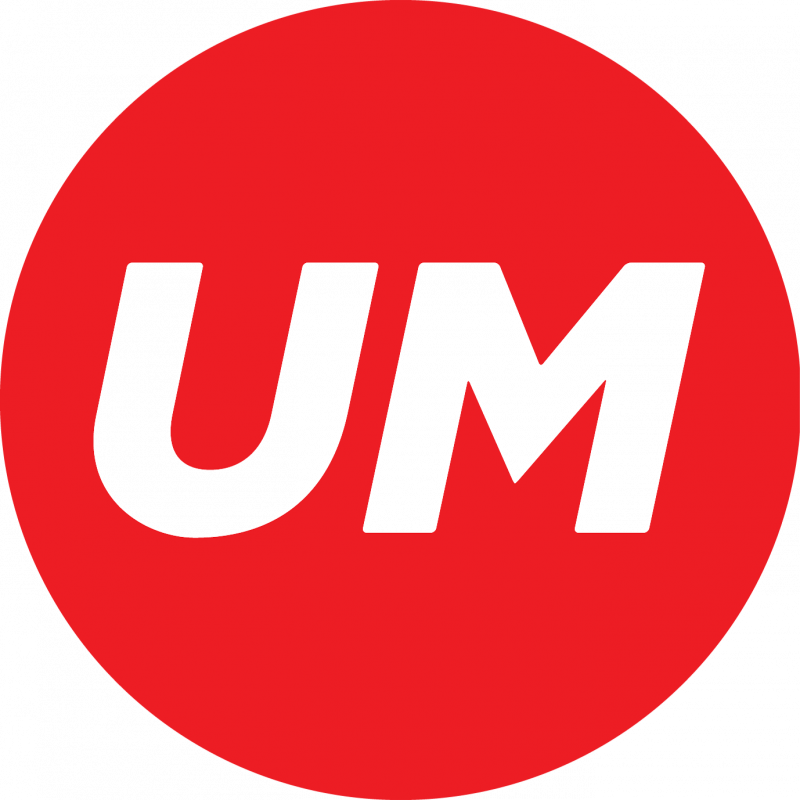CEOs during COVID-19: Fiona Johnston on doing one thing at a time and hanging onto the good stuff
In this series, Mumbrella’s Brittney Rigby asks media agency CEOs how they’re leading their teams through a once-in-a-lifetime pandemic. Here, UM CEO Fiona Johnston addresses why she’s missing ‘talking crap’ with her team, granting them the autonomy to say no to clients, and ensuring we take the ‘good stuff’ back to the office while leaving the ‘rushing to get to the office by 7am’ in the past.
Fiona Johnston is in between houses, and looking forward to getting back to the office. Working from home has been manageable, but “it’s not something I would personally want to continue”.
“I enjoy being in a commune of people. I enjoy people being around me and around the business. I thrive off people’s points of view, their perspective, their energy,” the UM CEO says. “It’s the looks, it’s the thoughts, it’s the presence you get from different people in different scenarios.”

UM CEO Fiona Johnston
IPG Mediabrands has implemented a10% reduction in hours (with a corresponding pay cut), a hiring freeze, and a pause on pay rises as part of a broader COVID-19 ‘resilience’ strategy. Some of Johnston’s employees are isolating alone, with very little human contact – solitary confinement is torturous for a reason. Others are juggling childcare or homeschooling or caring for vulnerable friends and family, without the routine and help that may usually structure those responsibilities.
Yet all of them are still expected to support each other, and clients, while personally wading through this grief and confusion and rewiring of one’s entire life. It’s a lot to ask of anyone, let alone everyone. And it’s very difficult to gauge ‘okay-ness’ via a video call. As Johnston puts it, she can’t put her arms around people when they need it.
In this interview, edited for length, the CEO is clear on one thing: While she has high expectations, and can be occasionally impatient, she cares about her team, and she wants them to be okay: “I absolutely give a shit and I care about them … It’s important. It’s the right human thing to do, to care for people.”
‘There’s not really much time to stop and think’: Hanging onto the ‘good stuff’
I’m really great in many ways and equally challenged in many ways. I do find this experience most curious, but it is hard, make no mistake. But it’s also bringing out some interesting stuff both in terms of people and application of talent.
We’re focused on what we’ve got to do, we’re focused on getting through this, and focused on so many things at once that there’s not really much time to stop and think, which therein lies another problem.
Because it is a very weird experience, both observing it for people, but also being a part of it for people, which is something I’ve spoken to my team quite a lot about. They’re needing to support and advise their teams and their clients in an observational support role, but they’re also going through it as humans.
But just making sure we bring back the good stuff from this experience, we don’t just automatically go ‘Oh that was interesting few months’ … and all of a sudden we’re back to trying to get into the office by 7am.
We actually can, with a little bit more acceptance, and a little bit more rigour, re-discipline ourselves into a different way of working.
‘Call the client, send them a note, write them a card’: Focusing on just one thing at a time
I think it’s important to be conscious of what you spend your energy on. I only do one or two social [events] a week. I can’t do this role, which takes a lot of me, and then add more as well.
Through this I’ve encouraged the team a lot, to just try and be focused on really what you should be doing. Because we are all a bit scattered and what would be a five-minute conversation with four people in the office is now four phone calls at 15 minutes each which takes a bit longer … really just focus on only the thing that you can do.

Johnston on a hike during isolation
And if things aren’t serving you energetically, there may be a reason for that, so be curious about that without judging yourself or anyone else.
Give yourself a bit of a break, because it is an intense environment, and everyone’s sitting in front of the screen day in day out, looking at themselves looking at everyone else. It doesn’t allow for any natural human intervals.
It’s just that constant on, on, on. Whereas if you’re in a meeting room with a few people, you might zone out for two minutes, you might check your phone for the time or whatever. You might pop to the loo, go get coffee. There’s none of that natural break in the day.
There’s so many layers to this experience. There’s the logistical challenge of where’s everyone and what’s everyone doing and how’s it all working? And then there’s the personal challenge of how do you keep yourself organised and on track? And then how do you keep multiple layers around that organised and on track? And how you feel through the experience and how do you then change that feeling?
So while it’s one thing to make sure the work’s done, check in with each other. Are you okay? Call the client, send them a note, write them a card.
Missing ‘hanging out, talking crap, solving stuff for clients’: The best and hardest parts
The thing I think has been nice has probably been people being reminded how important each other are, how they connect with each other, how they support and need each other.
I think the humanness and even the rawness, even when that’s stressful strain, the fact that humans really connect up so much of what we do. We know that tools and technology is critical to our industry and continues to be in should be, and enables some brilliant solutions. However, there’s a real humanness to who we are and what we do and I think that people have really missed that.
And generally, we just miss hanging out, talking crap, solving stuff for clients, having a laugh with clients, and also sharing the tough times.

A virtual UM management meeting
I think it’s given us a new appreciation, or fresh appreciation, of the thing that we can’t see, which is the human touch of who we are.
The hardest part is logistics. Definitely logistics, having to be on multiple phone calls to fix something, or having what feels like a more formal meeting when it could just be a nudge or a chat.
And making sure people are okay. It’s very hard to put your arms around a bunch of people who are all very disparate. You can only tell so much what’s going on for somebody and while some people will thrive in this environment and have really jumped in, some people are really not enjoying it and are having quite a tough time.
Some people are stuck at home alone and don’t have any contact with anybody … [it] makes it very isolating. You can end up chewing around loads of stuff in your head that you don’t need to.
‘Tough but enjoyable’: Re-planning and relationship reshaping
Not all clients changed off plan completely. They’re all quite buoyant. A lot of our clients are looking at the market and trying to respond appropriately, both from a human perspective and a market perspective. So I would say that they haven’t necessarily fully changed plans, but they have changed the way they’re working into a more agile way, which is great, because we want to be a bit more like that anyway.
We’ve done quite a lot of replanning on certain areas, and that’s been tough but enjoyable. So I wouldn’t say their work’s changed drastically, but the way they work has evolved. We want to make sure that some of that agility and some of that very clear decision-making we can keep, where appropriate, but also hopefully all our clients don’t expect us to do things overnight all the time on everything.
So we can make sure that some of those behaviours are bit more paced as we go into the future.
‘The team have their arms around each other and our clients’: Expectations and hopes
I’m expecting… ‘expecting’ feels like a tough word. I’m hoping that the team feel supported whilst in remote isolation. I’m pretty sure that the team have their arms around each other and our clients as they need to, and they’re picking up the phone and having really good, robust conversations where needed.
Obviously looking after our clients is a really important aspect of our business, as is looking after the media. So I’m hoping and expecting and I believe the team are making sure they’re tackling both the IQ and the EQ of what we do, making sure the work’s as good as it can be, and the human connection is probably a bit more oversteered than normal, just so that our clients know that we’re with them.
Equally, there has to be some level of understanding in the humanness of maybe certain things that can’t or won’t happen. So I’d like them [the team] to think they have the confidence and the autonomy to make decisions on what we don’t do as well.
In terms of me, what do I expect from myself? Well, I’m expecting to hold the ship together and keep everyone okay. Make sure that we’re still producing work that we’re proud of, make sure that our clients know that we have their back and that we can and will evolve and navigate and re-steer as quickly and as effectively as we can.

I hope mainly the team know that we’re okay, and they have support, and they have a number of people in the leadership team that care very much about them, and we’re here.
I mean, look, ask anyone on my team. They’ll probably say I have high expectations. At times, I can be maybe a little bit impatient. But ultimately, they probably all know I absolutely give a shit and I care about them.
It’s just the right thing to do. There’s never not a deadline and there’s never an end place of work. Work is a constant practice. So how you choose to operate through that practice for me is really important. I’m passionate about our output and our client growth in our product, absolutely, but I’d like to think we have a great bunch of humans that feel supported through that.
‘Cracking some of the things that we’ve always wanted to crack’: Coming out ‘buoyant’
We are working on a couple of products as well which are bespoke products in a post-COVID world. Success for me in this is how it forces us to evolve maybe even quicker than we were previously. I’d like to come out of this in a way that’s buoyant in terms of people, but buoyant in terms of product as well.
In terms of the numbers, obviously we all have to make sure we have a sustainable, ongoing business and we’ll work on that as we go through. There’s still lots of unknowns. So we are working up lots of scenario plans to ensure that we are sustainable and adaptable to that towards year-end and into next year. But ultimately, you have to come out with good people and good products. Otherwise, you don’t have anything to trade anyway.
What this experience forces us to do and to be is to crack some of the things that we’ve always wanted to crack, in terms of how we work and what we do and what we produce, not only because we have to, but also right now, we have this really unique period in time where everyone’s minds are open a bit more. Because nothing’s really normal.
So if you want to test this, we can test it. If you want to have a go at that, we can have a go at that. Everyone’s open to ideas, which is super exciting.


This: “it’s given us a new appreciation, or fresh appreciation, of the thing that we can’t see, which is the human touch of who we are.” So true and very well said.